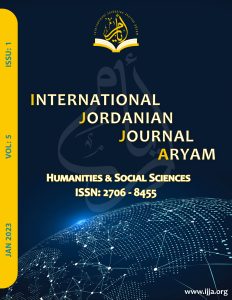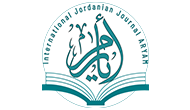Received: 11-6-2019 Revised: 15-06-2019 Accepted: 06-09-2019
Abstract: Treaties are a very important tool for managing the foreign relations of the Arab-Islamic state, due to reasons including that the treaties are based on the principle of mutual consent between their parties, with regard to defining rights and arranging obligations arising from them, which would make the treaty a better tool in the field of exchanging relations and broadcasting The spirit of cooperation and its development between the Arab Islamic state and other countries, as well as the existence of a treaty in any subject or issue whatsoever, as a legal guarantee for the respect and implementation of the obligations stated in the treaty, because it took place by the will of its parties, so the descent according to the provisions of the treaty on the part of the Arab state The Islamic covenants are covered by the duty to respect the covenants and covenants stipulated in the Qur’an and Sunnah.” And if the treaty is a means to regulate peaceful relations between states, especially the Arab Islamic state because it leads to spreading the call and extending security among all people, and it remains an appropriate means to regulate their relations in times of war, there are necessities that call for The need for them, such as concluding treaties for the transfer of the wounded, the exchange of prisoners, or any other matters related to the war or resulting from the end of the war.Perhaps what reflects the importance of treaties in the scope of the foreign relations of states is what the Arab Islamic state resorted to, i.e. its first establishment during the era of the Messenger (PBUH) and in The era of the Rightly Guided Caliphs – may God be pleased with them – concluded treaties with non-Islamic countries and peoples with the aim of regulating the relations between the two parties in all matters and issues related to the Islamic call in both states of peace and war. And when the contact of Muslims with other countries increased, the importance of treaties and covenants increased as a tool to secure and organize communication, and accordingly the jurists acted to put the necessary rules and rules regarding their drafting, editing, vetoing, arranging and coordinating their provisions and the principles of their contract between Muslims and non-Muslims. In this topic, we discussed the definition of the contract, its legitimacy, its ruling, and its conditions, and the interest of the contract, its form, duration, and fulfillment of it. This is what we will show in this research, God willing. This is what we will show in this research, God willing.
IJJA is a Humanities and Social Sciences publishing journal committed towards providing a platform to outstanding scientists and researchers to exhibit their findings for the furtherance of Humanities and Social Sciences.
The International Jordanian Journal, Aryam Journal of Humanities and Social Sciences (IJJA) (ISSN print: 2710-3005), (ISSN Online: 2706 – 8455) welcomes high quality contributions investigating topics in the fields of Humanities and Social Sciences .
![42cd5crossreff[1]](https://aijj.org/wp-content/uploads/2023/04/42cd5crossreff1.jpg)
![6357copenaccsess[1]](https://aijj.org/wp-content/uploads/2023/04/6357copenaccsess1.png)
![97aa6road[1]](https://aijj.org/wp-content/uploads/2023/04/97aa6road1.jpg)

